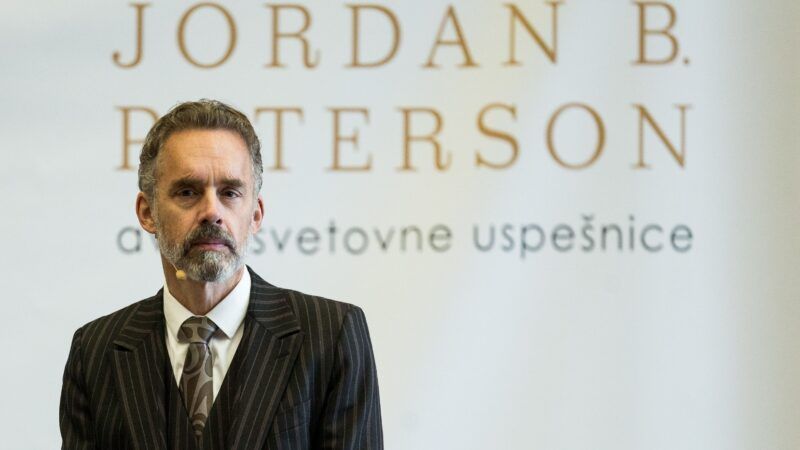Penguin Random House Employees Broke Down in Tears at Thought of Publishing Jordan Peterson's Next Book
"He is an icon of hate speech and transphobia."

On Monday, Penguin Random House announced it would publish a sequel to 12 Rules for Life, the bestselling self-help book by Canadian psychologist Jordan Peterson.
In response, several employees of the publishing giant broke down crying—and no, these weren't happy tears due to the prospect of selling so many books.
"He is an icon of hate speech and transphobia and the fact that he's an icon of white supremacy, regardless of the content of his book, I'm not proud to work for a company that publishes him," a young LGBTQ employee told Vice News. Another employee said people were crying in meetings because of the negative way "Peterson has affected their lives." Several submitted complaints—outraged that the company would give yet another platform to a person whose views they find toxic.
Peterson, a professor of psychology at the University of Toronto, is indeed controversial among progressives: He first came to the public's attention in 2016 when he criticized a Canadian human rights law that he said would violate academic freedom by requiring him to use trans people's preferred pronouns. (Peterson claimed he would not be forced to use words that, in his view, were invented by activists; he wasn't attempting to misgender any specific trans people.) In subsequent years, he became a passionate opponent of identity politics, speech policing, and cancel culture, and is revered by many young, right-of-center males.
Critics contend that he gave voice to the concerns of the far-right, and helped embolden racial bigotry and anti-trans animus. Defenders point out that Peterson does not actually push racist or bigoted ideas, he merely rejects the idea that people should be coerced into opposing them. Moreover, while it's undeniably true that Peterson was popular among the racist alt-right, others have plausibly argued that Peterson's work has helped to prevent some vulnerable young people from experiencing radicalization. In any case, his actual book falls squarely in the self-help category, and offers such banal wisdom as "clean your room." Reason's Matt Welch gave the book a conflicted review, observing that Peterson was "too important to—and reliant on—the great campus culture wars to have any realistic hopes of transcending them."
People who run publishing companies have to make all sorts of difficult decisions about which books to sign off on, and employees of those companies are welcome to give input: In many cases, that's their exact job. But it certainly says something about the ideological capture of so many elite institutions of knowledge sharing—the traditional media, social media, the university, and now book publishing. Many young, militantly woke staffers at these places are determined to suppress viewpoints they disagree with on grounds that conflicting opinions are literally dangerous to their safety. For them, Peterson's book isn't an intellectual endeavor worth challenging, it's an assault on their emotional wellbeing.
Peterson, for what it's worth, has apparently had a challenging year. It was reported that he had become addicted to prescription drugs and had traveled to Russia for treatment; doctors then placed him in a medically-induced coma for eight days as he recovered from pneumonia. He later went with his daughter to Serbia and contracted COVID-19. It might be interesting to read how—or even if—these struggles changed his thinking: His next book will be titled Beyond Order: 12 More Rules for Life.
I'd be lying if I said I wasn't mildly curious. Here's hoping Penguin Random House's Peterson-skeptics succeed in improving the book, rather than preventing it from ever seeing the light of day.


Show Comments (167)